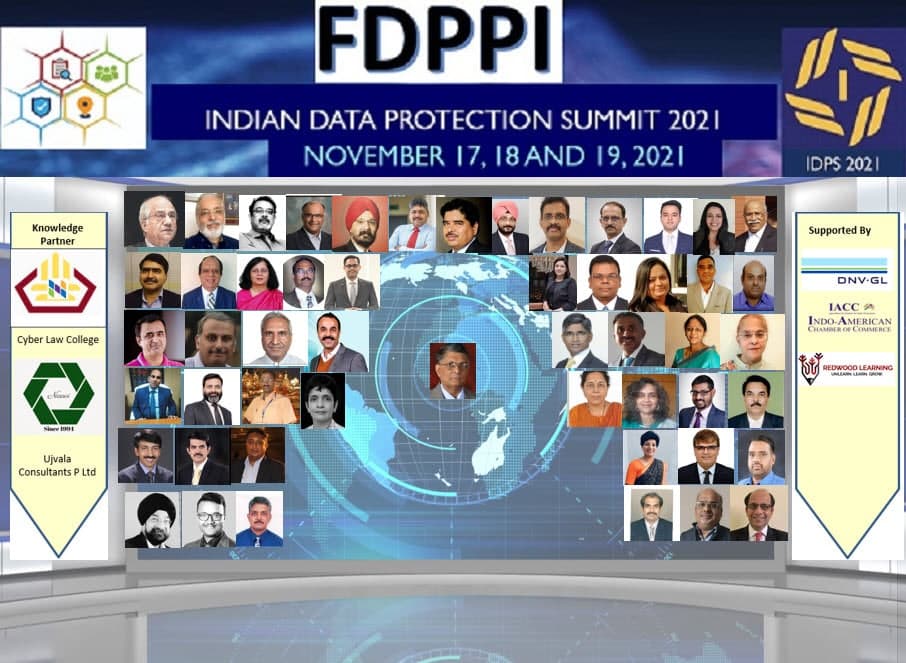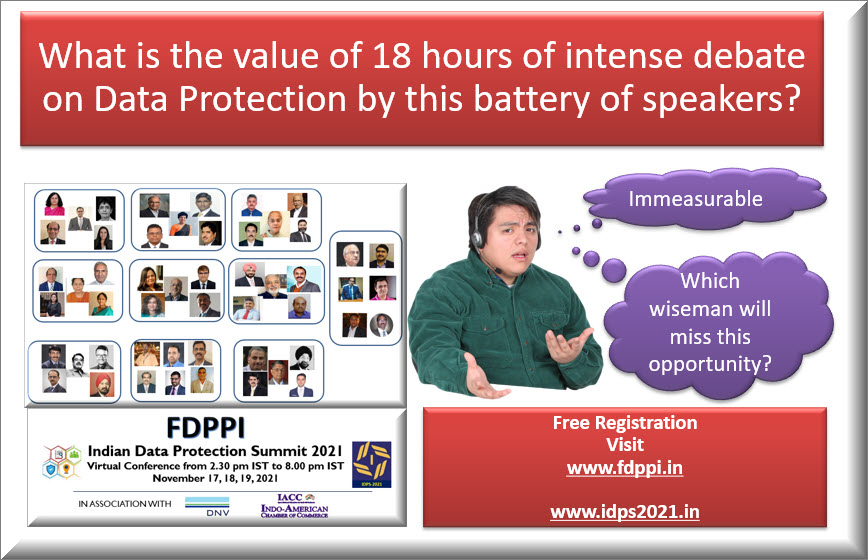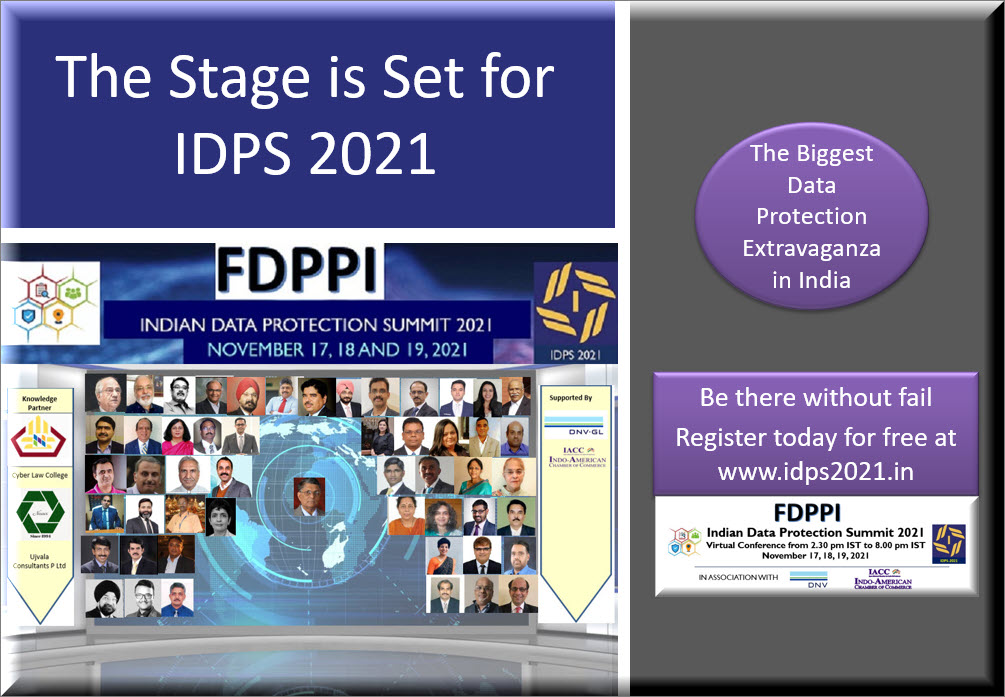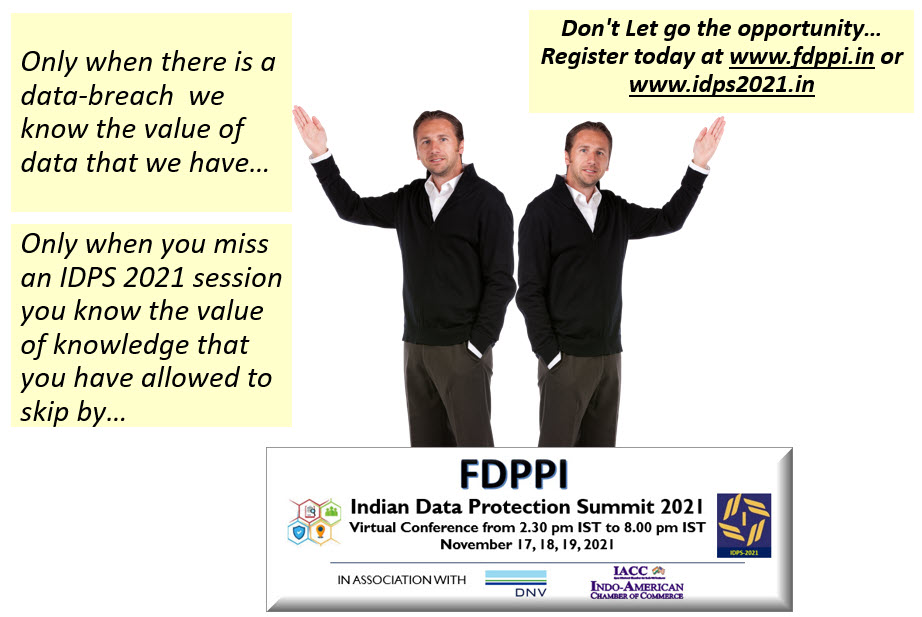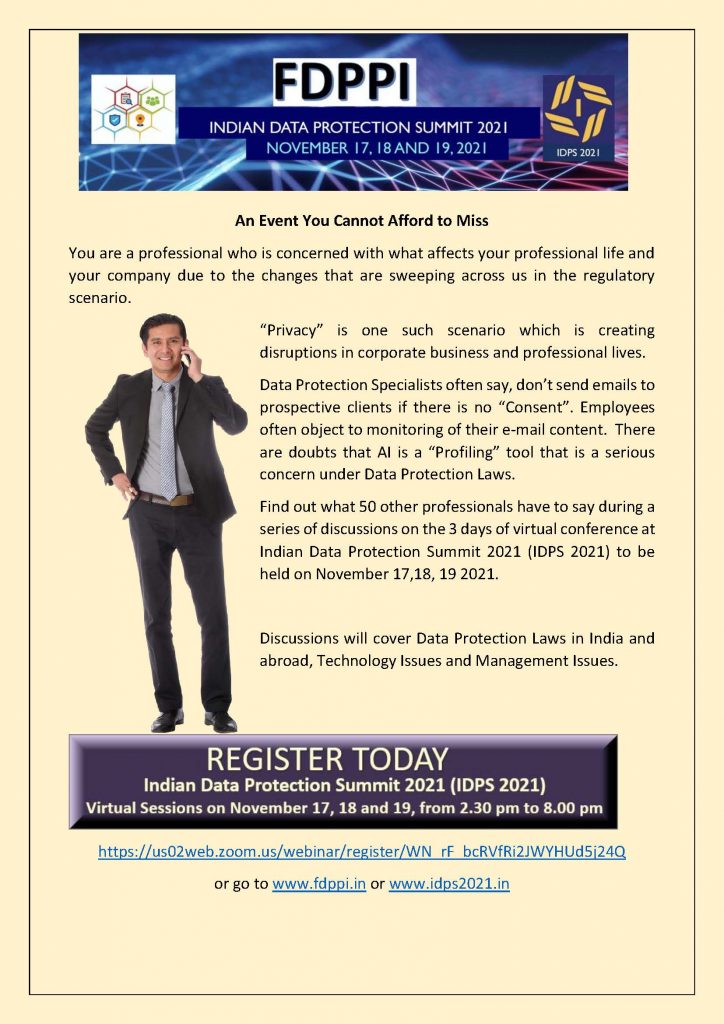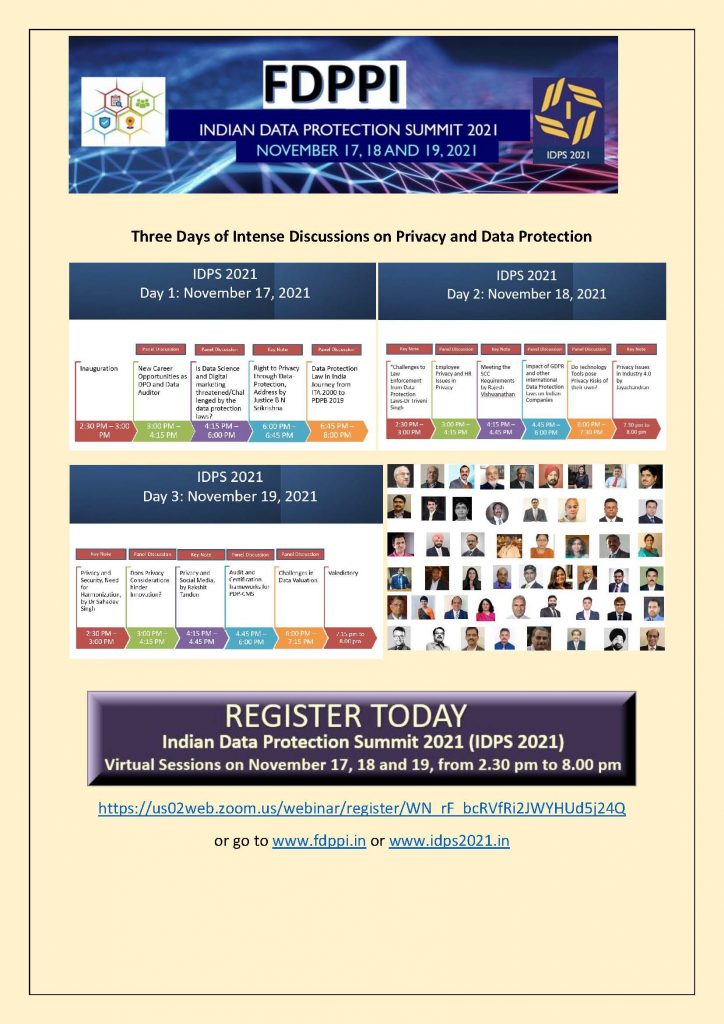-
Ask Vishy, the personal AI-assistant of Naavi for all your information on Naavi.org
Naavi

IICA Qualified Independent Director

-

-
DGPIN: 4PJ-7T8-FK8P: 12.94018310,77.55421020
-
Plus Code : WHR3+3P
Bing_site_search
Google_site_search
-
Recent Posts
- Nothing is wrong with Section 17(1)(c) and 17(2)
- Public Interest Litigation cannot be discussed without the real public having been given an opportunity to represent
- Whose Privacy are the Petitioners of DPDPA Challenge Brigade are protecting?
- CIO Prime features Naavi
- Petitions against DPDPA are “Disproportionate”, Disproportionate” and “Disproportionate”
Archives
Archives by Date
March 2026 M T W T F S S 1 2 3 4 5 6 7 8 9 10 11 12 13 14 15 16 17 18 19 20 21 22 23 24 25 26 27 28 29 30 31 -
-
How do you train your employees for 18 hours on Data Protection..all for free?
Posted in Cyber Law
Leave a comment
IDPS 2021…Countdown begins….for the Biggest Data Protection Extravaganza in India
Posted in Cyber Law
Leave a comment
9 Panels and 45 experts speaking on Data Protection on one platform-IDPS 2021
Posted in Cyber Law
Leave a comment

